You remember the Ropers. They were Stanley and Helen Roper, the landlords on Three’s Company until they became owners of a condominium on their own spin-off show, The Ropers.
Well, if your marriage is falling apart, or if you need to put some spark back into your relationship, you could learn a lot about improving your relationship by studying the Ropers.
Granted, most of how the Ropers handled their marriage is more like a blueprint on what not to do when you’re married. Still, watch enough reruns of Three’s Company and The Ropers, and you really can learn a lot about relationships. But if you don’t have time to binge-watch the two shows, well, don’t worry – I’ve done that for you.
Now, just to say at the outset, as I often do in this blog – when discussing the Ropers, I’m treating them like they’re actual people. (I think Norman Fell and Audra Lindley, who played Stanley and Helen Roper, would want that, don't you?) So when I say that the Ropers should have done this or that, yes, I am aware that these are fictional TV characters were confined to what scriptwriters made them do or not do.
But I think we can learn a lot more about marriage from the Ropers, if we treat them as real people.
So let’s take a look at the Ropers.
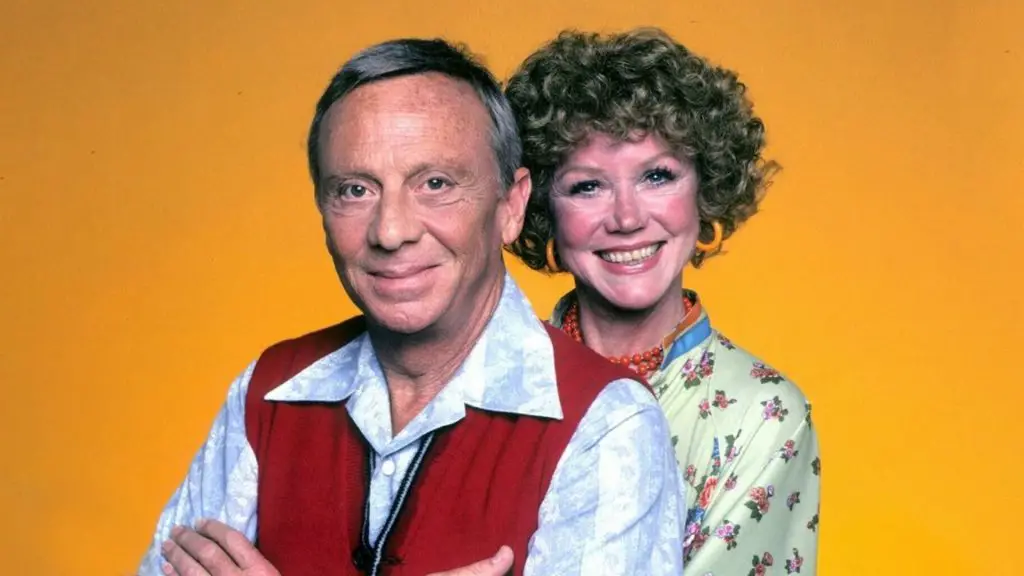
Today's "TV Lesson" Breakdown:
- Stanley Roper and Helen Roper
- The Ropers were stuck in a rut
- The Ropers should have sought marriage counseling.
- The Ropers should have been better communicators
- The Ropers too often treated each other like enemies, instead of spouses.
- Was there anything that the Ropers did do right, in their marriage?
- The secret of a good marriage, per the Ropers
- The Ropers’ marriage probably doomed the show
Stanley Roper and Helen Roper
We don’t know a lot about Stanley Roper and Helen’s past. For instance, I don’t think we ever learn Helen’s maiden name, though we become well acquainted with some of her family members in the spin-off The Ropers.
But what we do know about the Ropers' past is intriguing.
During World War II, Stanley was in the service (just like actor Norman Fell), and at the same time, Helen was in USO, a large organization with chapters across the country devoted to offering recreation and aid services to the military.
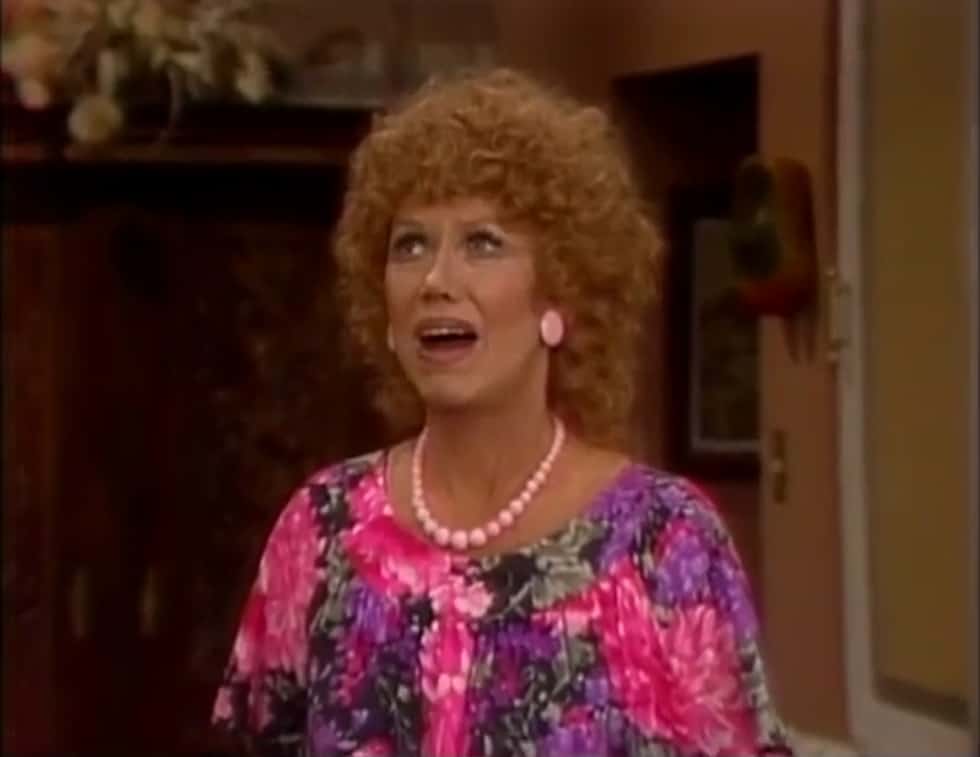
At some point, Stanley and Helen met, but when they did, Stanley had a girlfriend named Mary Milligan. As we learn in a Three’s Company episode, Helen managed to lure Stanley away from her. But as Helen remembered it, Mary didn’t hold a grudge and even came to the wedding shower – laughing the whole time, thrilled to be rid of Stanley.
Stanley and Helen married in 1956 – we can assume that, because in 1981, in their last TV appearance in a Three’s Company episode, they were celebrating their 25th anniversary. Because they were both serving in World War II, and if we go with the actors' ages, both Helen and Stanley met and were married in their 30s. That was uncommon during the 1950s, which makes you wonder if they each wound up settling for the other because they figured neither were getting any younger.
In real life, Lindley was six years older than Fell. She was born in 1918, and Fell was born in 1924. If we assume the characters ages were also the same, Helen Roper was 38 years old when she married, and Stanley was 32.
On Three’s Company, Stanley Roper was driving a beat up 1958 Chevrolet Bel Air. One can imagine the Ropers, newlyweds and excited about their new lives, buying this nice and new car – but as the years go on, for whatever reason, they don’t find a new set of wheels.
Well, the reason was -- Stanley was a penny pincher. As any fan of Three’s Company knows, Stanley Roper hated to part with his money. In an episode of The Ropers, we meet Ernie Grimes, an acquaintance of Stanley -- they were friends as early as 1945, shortly after the war -- and he refers to how cheap Roper had been back in the day. So that thriftiness was embedded in him, probably a trait Stanley picked up from family members, growing up during the Great Depression.
In 1965, Stanley and Helen Roper purchased The Hacienda Palms Apartments in Santa Monica, California. The apartment complex was mentioned in the second episode of the series; later, in a 1979 episode, in which the Ropers decide to leave the complex and move to a condo, Helen references the fact that they’ve been living there for 14 years.
We have to make a lot of assumptions about Stanley and Helen’s lives up to the point of when we meet them in the first Three’s Company episode, which started airing in 1977. But in piecing what facts we do know, you can start to see how they became the way they were.

The Ropers were stuck in a rut
The romance was long gone, but the Ropers were committed to each other, even if they didn’t always act like it. Norman Fell once compared his character's relationship with his fictional wife's to Archie Bunker and Edith and mentioned how it was clear that Archie loved Edith. Fell said that Stanley and Helen loved each other. Still, they often did act like they were at war.
And it’s easy to see why they were always at odds with the other. By the time we see them on the first episode of Three’s Company, the Ropers had owned the same car for almost 20 years. They had lived in a relatively small apartment for 12 years. There were no children and no pets – not until Mr. Roper buys Helen a parakeet in the second season. Helen had no career, although at some point – probably before buying the apartment complex – she worked in the laundry room of a hospital. She also, probably before she met Stanley, held a job at a post office. (During the second season of Three's Company, for one episode, Helen Roper does get a job at a cafeteria but soon quits it.)
Once Stanley owned the apartment building, all he needed to do was make minor repairs and collect the rent. The Ropers seemed to get on each other’s nerves all the time because they didn’t have enough excitement going on in their lives.
Helen never tired of reminding Stanley, in fact, of how boring their lives had become.
Every day in the Ropers' dreary lives must have been the same, except when they occasionally were drawn into Jack, Chrissy and Janet’s world. By the way she reacted any time she visited her tenants and neighbors above her apartment, or whenever they came to see her, Helen was clearly bored out of her skull.
So the marriage lesson here is clear – don’t let your marriage get stuck into some deep rut. If every day feels like the same, month after month, year after year, you both may be courting trouble. Buy a car. Get a job. Move to a new place. Have kids. Get a pet, other than a parakeet, which is just going to be in a cage, which could end up becoming a symbol for your lives. Instead, you know, get a dog you can both walk to a park.
Maybe if the Ropers had added some more variety to their lives, they would have had a better marriage... and maybe that would have also led to what Helen always wanted, a closer, intimate relationship in the bedroom.
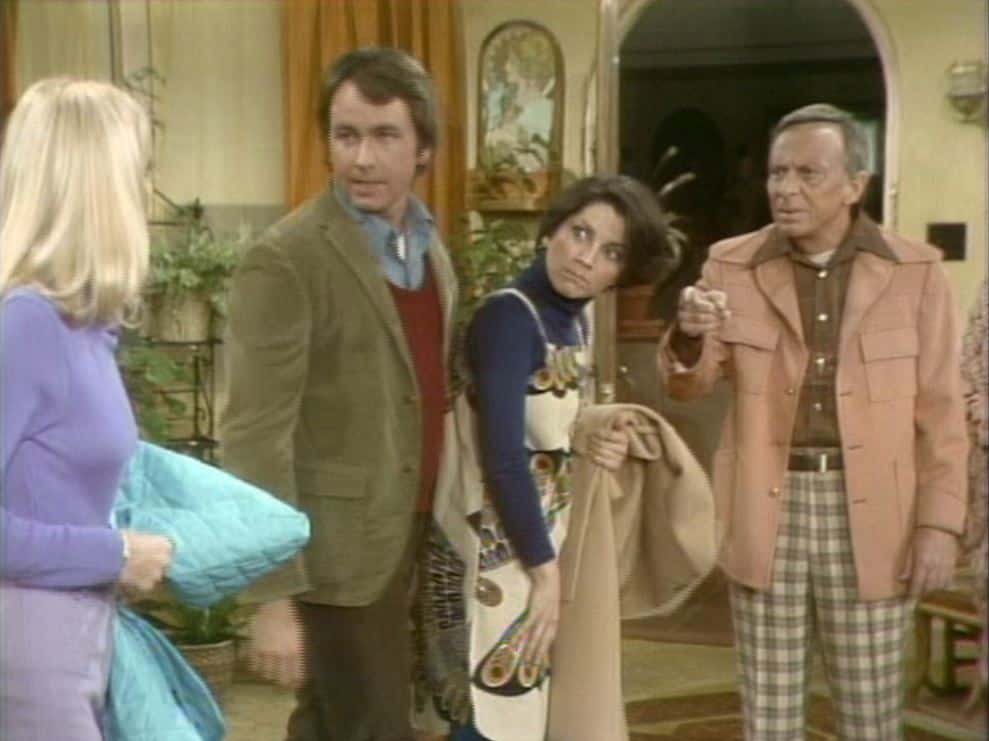
The Ropers should have sought marriage counseling.
On a regular basis. They actually do see a marriage counselor in an episode, early in The Ropers, but seeing one regularly would have helped them. That said, it seems unlikely that a middle aged couple like Stanley and Helen Roper, in the midst of the 1970s, would have thought couples therapy would be for them.
According to the book, More Perfect Unions by Rebecca L. Davis, marriage counseling only started in the United States during the 1930s. By the time Helen and Stanley married in 1956, they had been raised in a society where men and women had clearly defined roles. In an episode of Three’s Company called “The Party’s Over," Stanley refers to how Helen said in their wedding vows that she would “love, honor and obey” her husband.
Then he added -- because he felt Helen was disrespecting him -- that the vows "didn't say, 'Love, honor and make Stanley look like a jerk.'"
"That's because God had already taken care of that part," Helen said.
Yes, they argued a lot. Of course, the Ropers were part of a long tradition of married couples putting each other down. The Bickersons on the 1940s and early 1950s radio show The Bickersons (and later in some short-lived TV incarnations) were famous for trading insults. In many ways, the Ropers were middle aged versions of Ralph and Alice Kramden, who were always verbally sparring.
In Davis’s book, she mentions how in 1951 a prominent marriage counselor was urging married women to "realize that they should try to abandon their independent attitudes in favor of co-operative planning and thinking." Twenty years later, the same counselor's thinking had changed and offered up this quote: “We're moving in the direction of achieving equality in marriage, and really it can't be otherwise. Unless we achieve equal partnership between men and women, marriage will not survive."
So while Stanley and Helen Roper lived in a time when marriage counseling was in the mainstream, and women were at least starting to be considered equal partners in society, the formative years of their relationship came about during the more repressed 1950s. By the 1970s, marriage counseling was widely accepted, but it was still considered something that couples either engaged in before marriage or near the end of one, in order to save a marriage. It wasn’t – and probably still isn’t – a place that a squabbling couple would go to, to simply strengthen their marriage.
In fact, in The Ropers episode where the Ropers seek professional help, when the idea is initially brought up to her, Helen responds with: “Oh, a marriage counselor? I would never do that."
It’s a shame she felt shame about seeing a marriage counselor. A marriage counselor probably would have done wonders for the Ropers. As fans of Three’s Company and The Ropers know, Stanley and Helen practically made an art out of bashing each other.
Mrs. Roper: We had a peeping Tom the other night.
Mr. Roper: You’re making that up.
Mrs. Roper: No, I’m not. I saw him plain as anything. He was looking in our bedroom window -- and yawning.
Mr. Roper: You must’ve been getting undressed.
Mrs. Roper, however, gave as good as she got. Shortly before Mr. Roper’s niece, Karen, comes to visit them, Helen tells him that instead of boring her with his stories about his time in World War II, “she ought to be out having some fun with people her own age. She ought to be out dating.
Mr. Roper: Dating? In this city? It’s crawling with freaks and – and weirdos and – and perverts.
Mrs. Roper: Oh, I wasn’t talking about your friends, Stanley.
And in another episode, when Stanley mentions a crack in their ceiling, Helen says that it was caused by an earthquake.
Mr. Roper: What earthquake?
Mrs. Roper: The big one. Don't you remember? Oh, it was thrilling.
Mr. Roper: Thrilling?
Mrs. Roper: Yeah, it was the first time our bed moved in years.
There was no chance that the Ropers were going to try marriage counseling, and they had probably been busting each other’s chops for so long, neither of them really noticed how cruel they could sound to each other. Would it have benefited them to talk to a professional? You would think so.
In fact, in season four of Three’s Company, when Jack, Chrissy and Janet are arguing over money won on a bet on the horses, they go to see a psychiatrist to help them patch things up. Unfortunately, that probably didn't influence the Ropers any, if they even knew about the trio talking to a psychiatrist. At that point, the Ropers had moved out of the apartment complex, and Mr. Furley (Don Knotts) moved in.
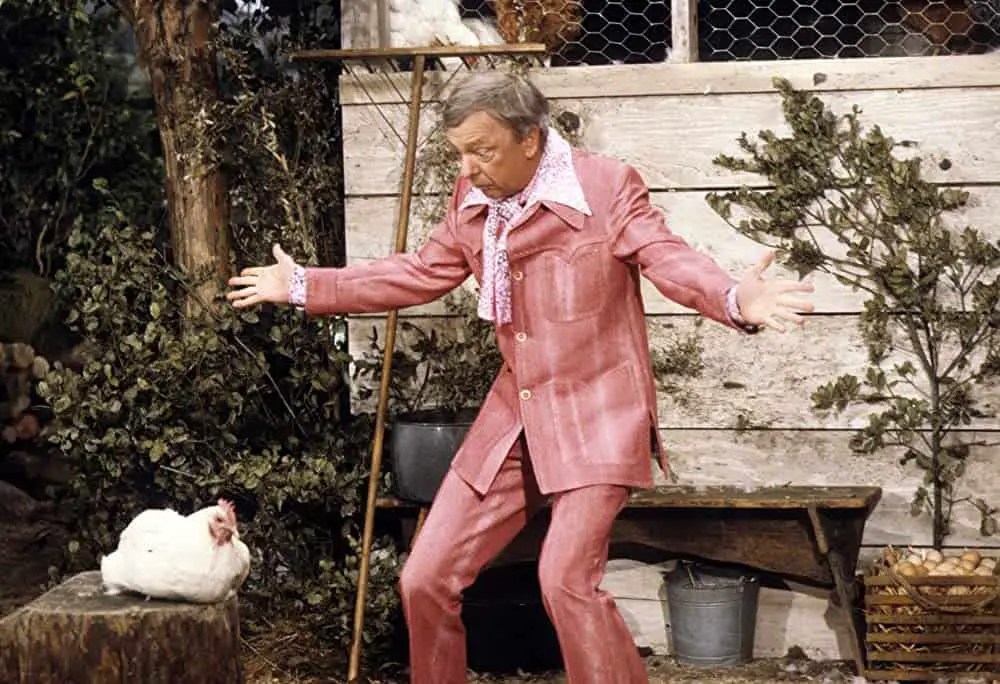
The Ropers should have been better communicators
Three’s Company was famous for its characters misunderstanding each other. In fact, in a 1994 episode of Friends, Chandler Bing (Matthew Perry) catches a glimpse of a Three’s Company on TV and says, “Oh, I think this is the episode of Three's Company where there's some kind of misunderstanding.”
So it shouldn’t be a surprise that the Ropers on Three’s Company and then on The Ropers were often running into complications due to misunderstanding each other – but the confusion often came down to poor communicating. On Three’s Company, the mix-ups were generally between Stanley Roper and something he heard Jack, Janet or Chrissy say, but once The Ropers came on, suddenly Mr. and Mrs. Roper were involved in a number of stressful situations that could have been avoided if they had just talked more directly to each other.
For instance, early in the first season, Helen finds letters from Stanley to “Doris” and assumes he is having an affair. She almost confronts him over the letters, but Anne Brookes (Patricia "Patty" McCormack), one of their neighbors, suggests Helen be subtle and see if she can get Stanley to confess to the affair. From Anne’s point of view, it isn’t unreasonable. She thinks the letters were probably penned to an old girlfriend, and that Stanley is not having an affair. But, of course, since Helen doesn't directly ask Stanley about the letters, she continues to assume that her husband is having an affair with a floozy named Doris.
And that’s when Helen picks up on an idea Anne had and decides that they should see a marriage counselor.
Buried in the bickering banter with her husband, Helen has a strong argument for seeing a marriage counselor.
Mrs. Roper: Marriage is like taking a trip in a car. Sometimes, you reach a crossroads, and sometimes you need a map to find the way.
Mr. Roper: What are you talking about? Our marriage isn't going any place.
Mrs. Roper: You can say that again.
Anyway, the Ropers meet with a marriage counselor, and incredibly when Helen Roper finally brings up this floozy that Mr. Roper is supposedly having an affair with, instead of setting his wife straight – he leaves the session.
It’s only at the very end of the episode when Mr. Roper clears everything up. Yes, he wrote a bunch of romantic letters to a woman named Doris – letters he never actually sent. They were fan letters – to movie actress Doris Day.
But why didn’t Stanley say something sooner? Because he was afraid Helen would laugh at him. And unfortunately, he may have had a point for keeping his mouth shut. Because after Stanley explains who the letters were to, and after she warmly embraces her husband and makes it clear that she is grateful he isn’t having an affair, Helen does collapse into hysterics.
The Ropers too often treated each other like enemies, instead of spouses.
There are so many examples, but one that jumps out at me is that when the Ropers are meeting with that marriage counselor. Stanley decides to leave, and Helen, still seated, raises a leg, trying to trip him. He stumbles, although he fortunately doesn’t fall. But all I could think was – what kind of spouse does that to the other?
Not that Stanley was any better. He would often toss out an insult onto Mrs. Roper and then break the fourth wall, smiling at the camera, because he had just lobbed a great wisecrack.
Like the time Mrs. Roper begged Stanley to paint the outside of the apartment building. "How long can you stand to look at something so faded and drab?" Mrs. Roper asked.
"I don't know," Mr. Roper responded. "How long we been married?"
It was fun for the TV audience, but it was no way to treat the person you’re married to.
Was there anything that the Ropers did do right, in their marriage?
Yes. Look, the bar is low. When Stanley sells the apartment complex in Three's Company to Mr. Furley's brother, Bart, he doesn't even discuss it first with Helen. Fortunately, the windfall they made was high enough that Helen decided she didn't care. But talk about egregious behavior.
Still, sometimes, Stanley and Helen Roper treated each other exactly the way you would hope a spouse would treat each other.
In an episode early in the second season of The Ropers, a young man named Bill visits and introduces himself to Stanley. Bill is convinced that Stanley is his long-lost father, and he makes a persuasive argument. (Of course, this is based on a misunderstanding Bill has; he has read his mother’s diary, and he jumps to conclusions. But to be fair to Bill, his mother’s diary did strongly suggest that Stanley was his father.)
Anyway, Stanley, at first, turns Bill away. He’s confident that Bill isn’t his son, because he is positive he didn’t have, um, relations with Bill’s mom, but after talking about it with Helen, he starts to have doubts. It was a long time ago. Maybe Bill is his son? What’s more, maybe that would be kind of great, having a son. Stanley starts fantasizing about playing baseball with Bill and taking him to Disneyland, never mind that Bill is a grown adult with a wife and kids.
But what struck me about the episode and the Ropers’ relationship is that once Helen convinces Stanley that he should talk to Bill and have a relationship with him, she fully supports her husband. She doesn’t browbeat him for having a fling years ago. She also doesn’t decide that she won’t have anything to do with Bill. Granted, it’s fully in character for Helen to embrace the idea of Bill and decide that she can consider him her son as well her. But, still, it’s a nice moment and one of the few we see the Ropers where they are truly being partners and a full-fledged couple.
That’s why it’s so sad – and it really is sad – near the end when it comes out that an acquaintance of Stanley’s, and not Stanley, is Bill’s actual father. It’s clear that even Bill is disappointed and would have enjoyed having the Ropers as parents.
Which sounds crazy if you’re only somewhat familiar with the Ropers, but in this episode, the Ropers come off as more down-to-Earth and normal than maybe in any other time on the series or in Three’s Company. And it’s evident that the Ropers would have made excellent parents if they had gone down that path. In The Ropers, Mr. Roper forges an easy going rapport with David (Evan Cohen), the boy next door. In many ways, Mr. Roper is a better father to David than his own father, Jeffrey P. Brookes (Jeffrey Tambor).
Stanley Roper, as much as he doesn’t dote on his wife, he does care about her feelings. When Stanley forgets to pay the electric bill and the power is turned off, Helen’s wealthy sister, Ethel, is coming over for dinner with her husband. Stanley goes to great lengths to keep the power on – by stealing it from his neighbors. And, sure, much of that is self-serving – Stanley doesn’t want to be blamed for being a careless nincompoop – but he also knows that if Ethel catches wind that their power was turned off, Helen will never live it down.
And then there was the time Helen’s mother threw a wake – for herself. Helen’s mother figured why not have a celebration of her life while she’s around to enjoy it, instead of afterwards when she’s gone. Well, Helen worries about her mother’s health, and Stanley, who could have easily gone with the usual insult, was surprisingly reassuring.
“Oh, c'mon, Helen, you know your mom. She's just being practical,” Stanley said.
“Then you don't think she's really sick?” Helen asked.
“No, she's not really sick,” Stanley said. “With our luck, she'll probably be around with 10 or 20 years.”
Again, the bar is low, but it was nice to see that the Ropers could be pleasant to each other when it really mattered.
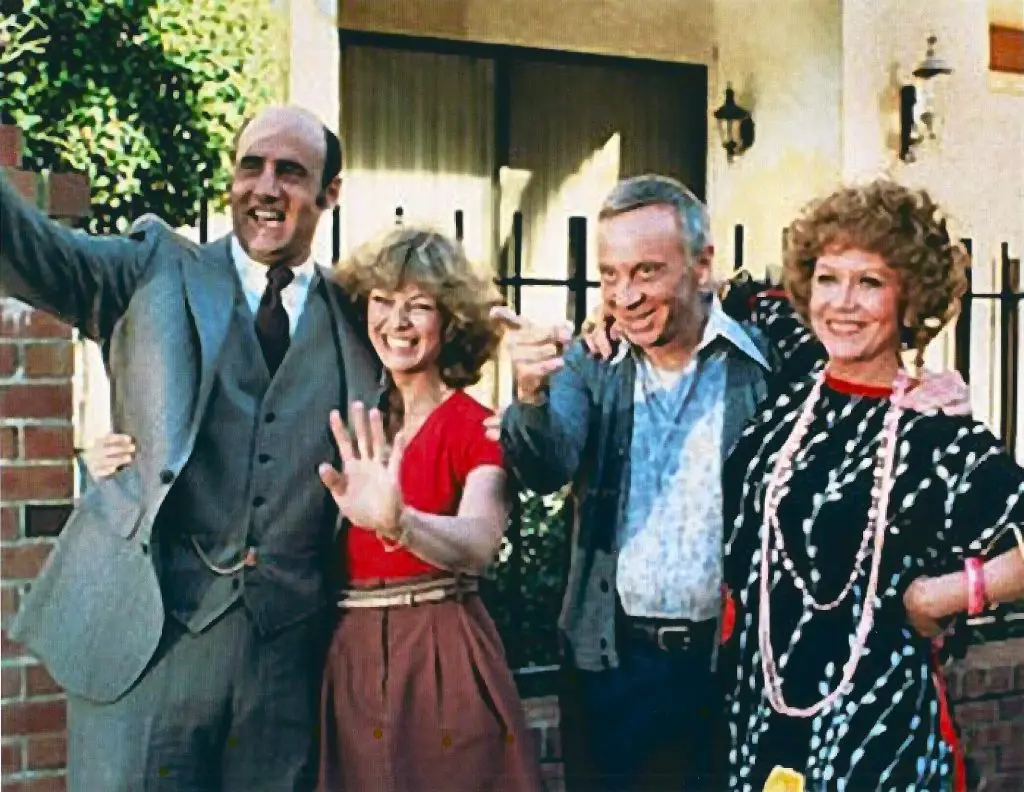
The secret of a good marriage, per the Ropers
So what can we learn from the Ropers' marriage? This may be pretty obvious advice, but I'd suggest envisioning your marriage as a sitcom. Would people want to watch it? If you're often doing things together and solving problems and trading amusing banter, I assume most people would enjoy your marriage as a sitcom.
Think of Mad About You instead of mad at you.
If you can't imagine people tuning into watch a show of your marriage, because you're constantly belittling each other, and your household is awash with negativity... if your marriage or relationship reminds you of Stanley and Helen Roper, then you obviously have some work to do.
The Ropers’ marriage probably doomed the show
Three’s Company had particular comedy gold in one of its stars, John Ritter, but a big reason the sitcom was such a hit was due to the relationships between all of the characters on the series. Long before NBC came up with a hit show called Friends, we had a show called Three’s Company, which was, in many ways, the precursor of Friends (and interestingly enough, Audra Lindley had a guest spot on Friends as Phoebe's grandmother).
Jack, Janet and Chrissy, and later, Cindy and Terri were all close friends who would have done about anything for each other. A neighbor and used car salesman, Larry Dallas was also a valued pal, and even if they were sometimes the villains of the episode, the Ropers and Mr. Furley were more like family members to the tenants than anything else.
But The Ropers was a sitcom following a married couple who often appeared to barely be able to stand each other – and were living next door to a couple who also seemed to have their own marital strains. Jeffrey P. Brookes, anyway, did not seem like someone who would be easy to be married to. Brookes also didn’t like Mr. Roper much. Everybody liked the kid on The Ropers, but the only adults who seemed to genuinely like each other was Anne Brookes and Helen Roper.
Comedy was supposed to come from all that conflict, and, sure, we knew that deep down, Stanley and Helen loved each other, but that’s a lot of negative energy to be spending time with, week after week.
It's likely that Norman Fell, who played Stanley Roper, and Audra Lindley, who played Mrs. Roper, intuitively understood what they were up against and knew their characters were better in smaller doses. Fell and Lindley certainly knew that the odds of lightning striking twice and winding up on another hit show was slim. At this point in television history, while a lot of TV spin-offs had been huge hits, such as The Jeffersons and Maude, both spin-offs of All in the Family, plenty of shows didn’t fare so well, like Phyllis, which lasted two seasons and was a spin-off of The Mary Tyler Moore Show, and Blansky’s Beauties, a one season spin-off of Happy Days.
Norman Fell told one reporter, early in The Ropers run, that he wasn’t celebrating his new series quite just yet.
“I'm still cautious,” he said. “I've been burned in the past. I've had hit TV shows in New York, and people told me I was on my way. The next day I was back in the unemployment line. So I'm taking this success season by season."
Fell was clearly thinking of Dan August, a 1970-1971 police detective series starring Burt Reynolds. Fell was the second lead, playing Sgt. Charles Wilentz. They filmed 26 episodes, but ratings weren't great, and it was canceled. Fell had also helmed a sitcom from 1973 to 1974 called Needles and Pins. He played a women's clothing manufacturer named Nathan Davidson. The show only stuck around 14 episodes.
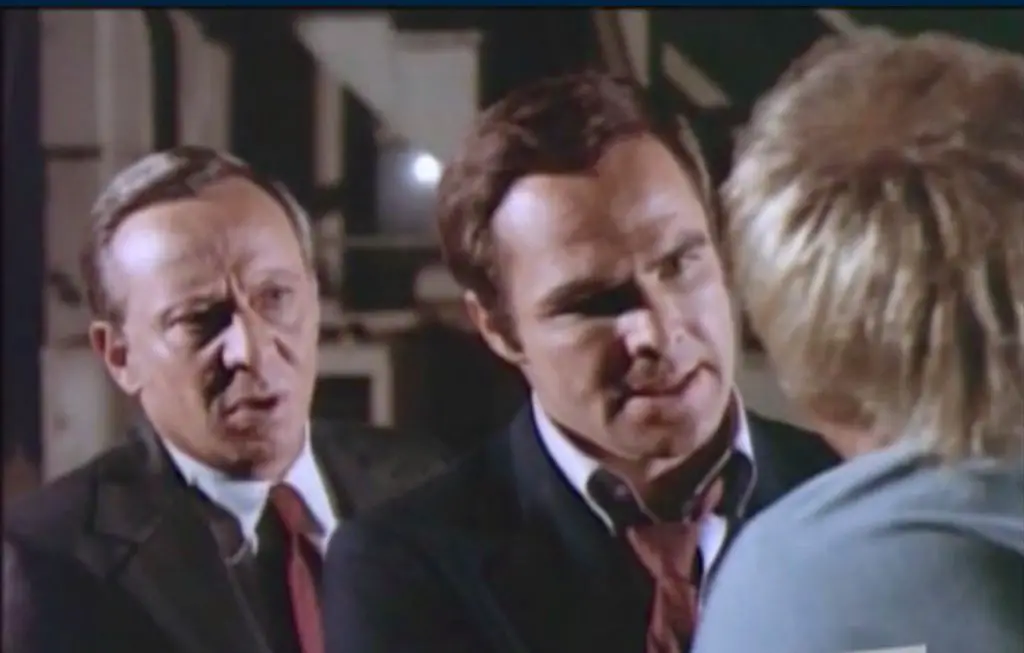
Fell, in fact, tried to talk his producers out of spinning off the Ropers onto their own shows. But according to some reports, Audra Lindley was more than game to to the spin-off, and Fell probably felt the pressure from the network suits and his Three’s Company employers. He got reassurances that he and Lindley could return to Three’s Company if The Ropers quickly tanked, but the series limped along for a season and a half.
The producers evidently recognized that their was a problem. Somewhere in the middle of that second season, the Ropers discovered an 18-year-old basically homeless college student, Jenny Ballinger, living in their storeroom, played by the winsome Stevie Vallance, who was then going by her middle name, Louise, in the credits. The Ropers sort of "adopted" her, where she moved in with them, and she quickly became a series regular.
Vallance brought some fresh energy and youth to the show, but 19 episodes into that second season, it wasn't enough to stop the series from being cancelled.
Meanwhile, Don Knotts, as the replacement landlord, Ralph Furley, had become a fan favorite. When The Ropers ended, Norman Fell and Audra Lindley had nowhere to go – except to return as guest stars for one Three’s Company episode.
The episode was called “The Night of the Ropers” and aired in 1981.
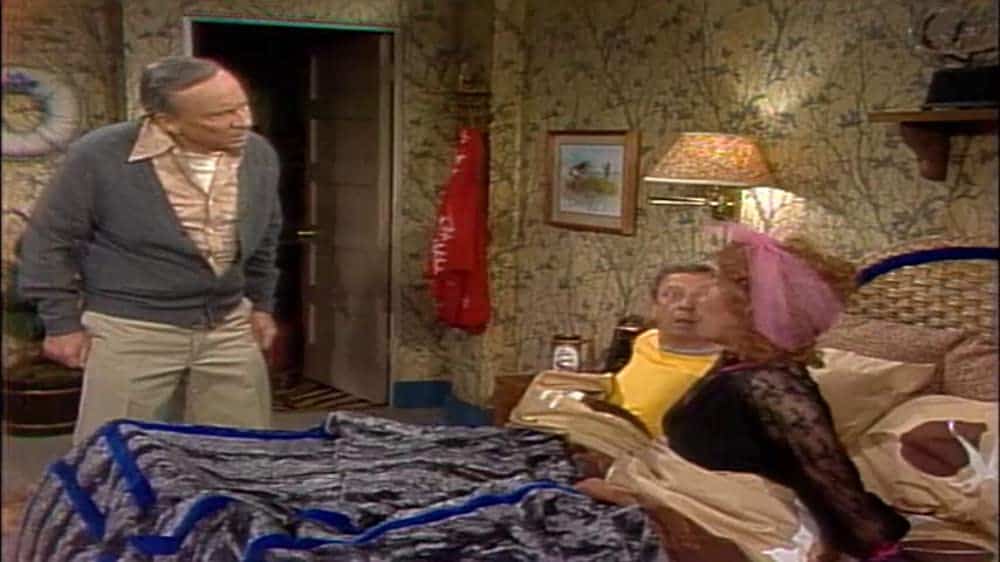
"The Night of the Ropers" was a fitting send off to the Ropers, in that Stanley and Helen were on the outs, on their 25th anniversary. It seems that instead of celebrating their anniversary, Stanley was going to go bowling with one of his pals. But Jack, Janet and Chrissy’s cousin Cindy get involved, plus Mr. Furley, and before you know it, Jack is at the Regal Beagle, talking to Stanley and convincing him to reunite with his wife. Soon, the two Ropers are having a romantic evening exactly in Helen's favorite place -- in a bedroom.
But Mr. Roper didn’t sound too happy about his reunion with Mrs. Roper at the end of the episode, and his final exchange with Jack Tripper. In so many ways, Mr. Roper's words, at once amusing and a little tragic, suggests why The Ropers didn’t have much staying power as a stand alone sitcom.
“If you didn’t come for me, we wouldn’t have gotten together like we did last night,” Mr. Roper says, sounding somewhat grateful.
“Well, maybe,” Jack says.
“No, really,” Mr. Roper says. “And someday, I’m gonna get even.”
Where to watch the Ropers (at the time of this writing): The Ropers can be found on Three’s Company and The Ropers on PlutoTV.
Articles similar to this Ropers story: One of the very first blog posts on The TV Professor was a Three’s Company piece offering advice on how to tell a creditor you’re behind on payments.

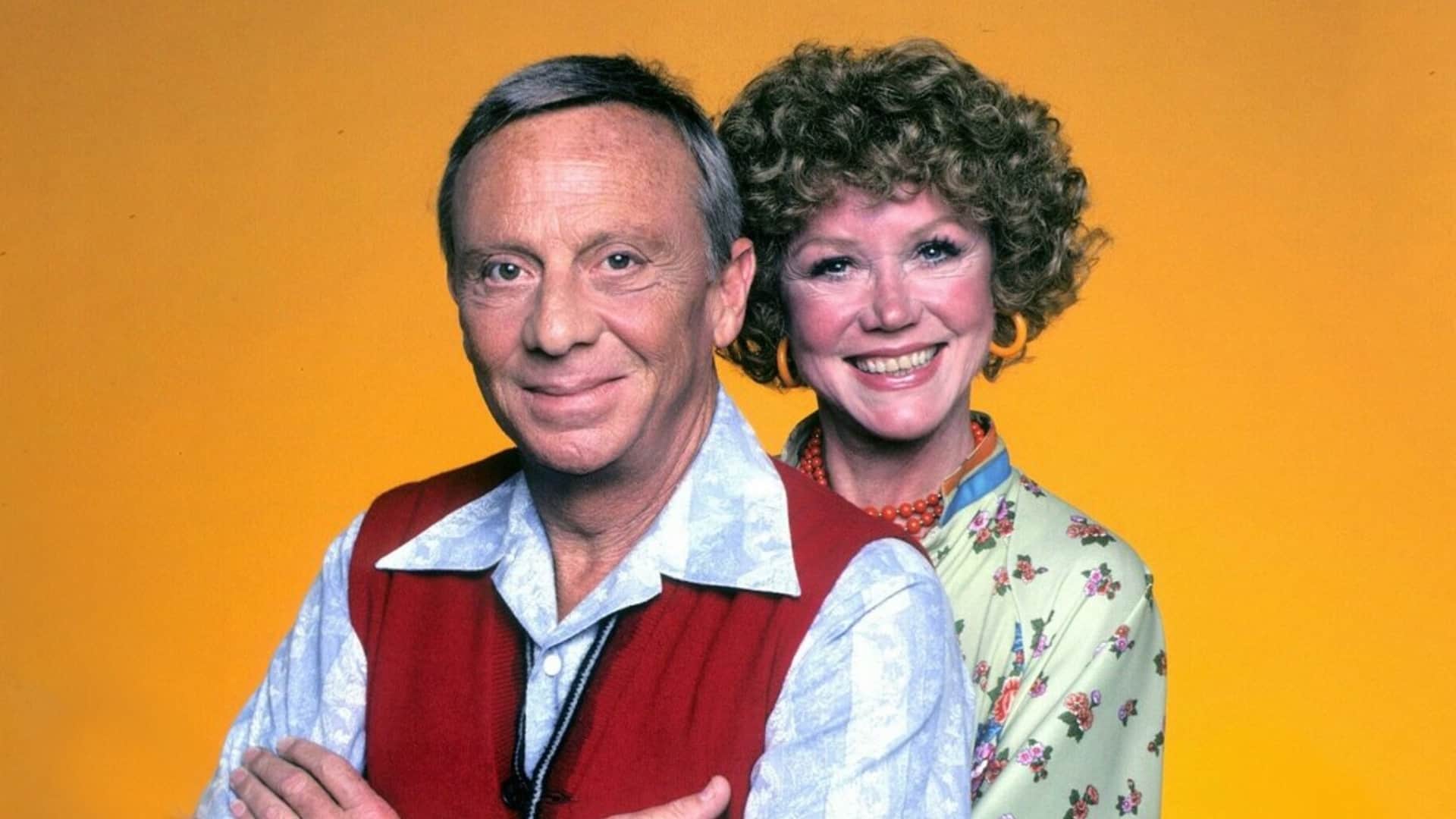
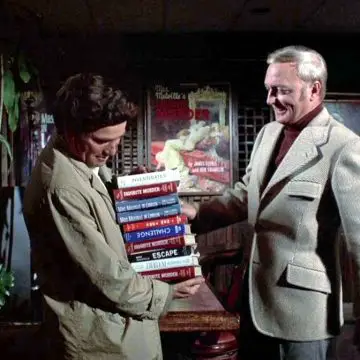
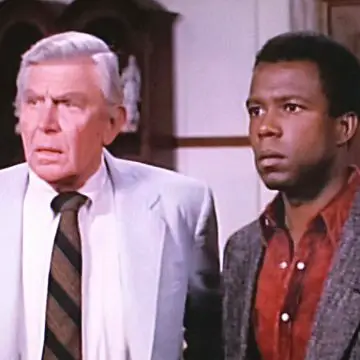
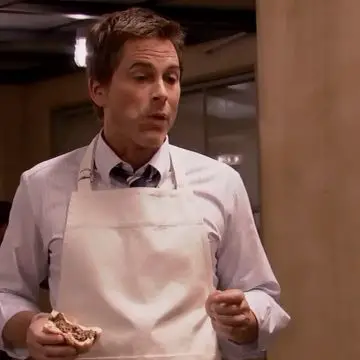
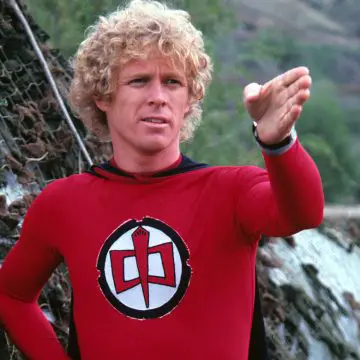
Leave a Reply